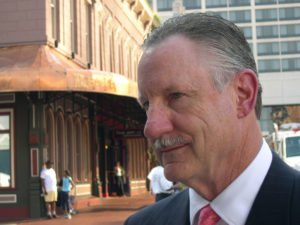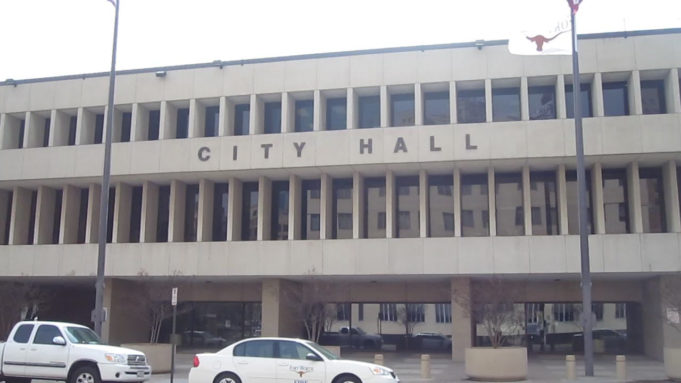Fort Worth City Council is taking a longish breather, canceling both its year-end December 31 meeting — understandably — and its scheduled January 7 meet. And while the agenda has not yet been posted for the January 14 meeting, there is a good chance it will include a proposal to change the way the city’s Ethics Review Commission (ERC) is made up.

The ERC — a five-member body, one of whom must be a lawyer — is tasked with looking into issues of graft, nepotism, conflicts of interest, and all sorts of other dirty deeds committed by city officials. Until 2012, city council had to reach out to the public for input on who should serve the commission’s two-year terms, but former mayor Mike Moncrief blew up that system when he fired the commission’s president, Hortencia Laguna, over a citizen complaint that gas industry executives were in conflict-of-interest when they were appointed to an air-quality task force.
Two major changes in the ERC resulted from Moncrief’s actions: City Council decided they would no longer ask for the public’s input on who to vote onto the commission, and a rule was put in place that noted that if any city official had relied “either directly or indirectly” on a written opinion from the city attorney’s office, no ethics violation had occurred. Additionally, if charged with an ethics violation, the city official in question had 15 days from the date the charge was brought to acquire the city attorney’s written opinion (“Chipping Away,” Aug 2012).
Those changes effectively neutered the Ethics Review Commission. Fortunately, if unbelievably, not a single ethics violation has been charged since those changes were made, according to City Attorney Sarah Fullenwider.

“The last time the Ethics Commission met was in 2012 when the Ethics Ordinance was revised,” Fullenwider wrote in an email to us over the Christmas holiday, “and no complaints have been presented to the Ethics Commission since the ordinance was revised in 2012.”
Which leaves the current commission with five members whose terms have all expired, but it doesn’t matter because no one in Fort Worth’s government has done anything wrong in the last seven years.
But as was pointed out in this space not too long ago (“Ethics Review? What Ethics Review?,” Nov 13), “the lapse of the Ethics Review Commission ironically constitutes a violation of the city’s Code of Ethics.”
So City Council has come up with a plan to put things back on track. The plan is to have the council retain one lawyer on the commission and to have the other four commission members drawn anonymously from city commissions to evaluate breaches-of-ethics charges if and when they arise. The commission members would be drawn from a pool of everyone currently serving in the “City’s Zoning Commission, Plan Commission, and Boards of Adjustment by a random draw method conducted by the City Secretary,” according to a December 12 City Council communication. Those whose names are called will evaluate the single ethics violation charge and then disband. New names would be drawn for each violation charged.
There is some fine print, of course. Among other things, the four names pulled must come from four different council districts, and none of those randomly chosen may have a relationship with the person charged with violating the ethics rules.
To the cynical, it might appear that people who have a vested interest in city politics might not be the best evaluators of other people who have a vested interest in city politics, but Fullenwider does not see it that way.
“The proposed change,” she wrote, “was to avoid issues with term limits and to eliminate the situation where citizens are appointed to an inactive board that limits their participation on other boards and commissions as being a member of the Ethics Commission meant that you cannot serve on any other board or commission.”
Additionally, Fullenwider notes that “the change also assures some anonymity as to who is going to hear the complaints. With the approval of the ordinance, the ERC moves from being a standing commission to an on-call commission that’s convened when needed.
“It is my opinion,” she continued, “that this change makes the ordinance stronger and removes the opportunity for influence.”
From where we stand, we would rather the council reached out to members of the community – to activists, to professors, to scientists, to librarians, to school teachers – to evaluate ethics complaints. These folks might be capable of viewing an ethics complaint dispassionately. Then again, given that Fort Worth is so damned clean that not one legitimate ethics complaint has been filed since 2012, well, apparently we hardly need a responsible Ethics Review Commission at all.













I have filed two legitimate ethics complaints since August.
Seems self serving, also looks like fresh carpet installed 3 inches over the ground, to sweep untold stuff under. Six day old fish laying on the ground, smell better, shame this kind of governance is what makes Fort Worth what it is. Dark days ahead.